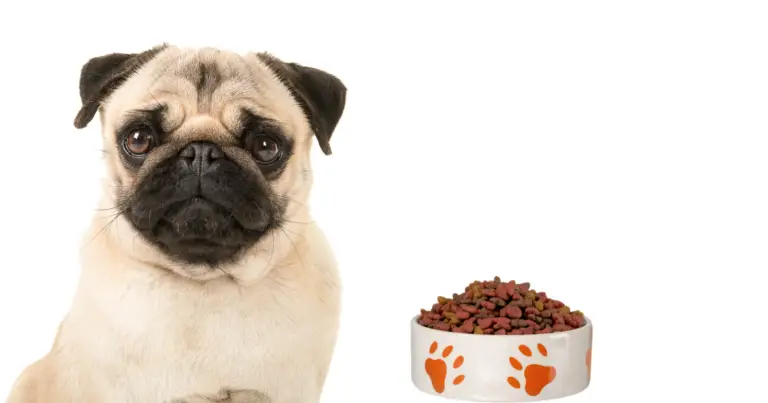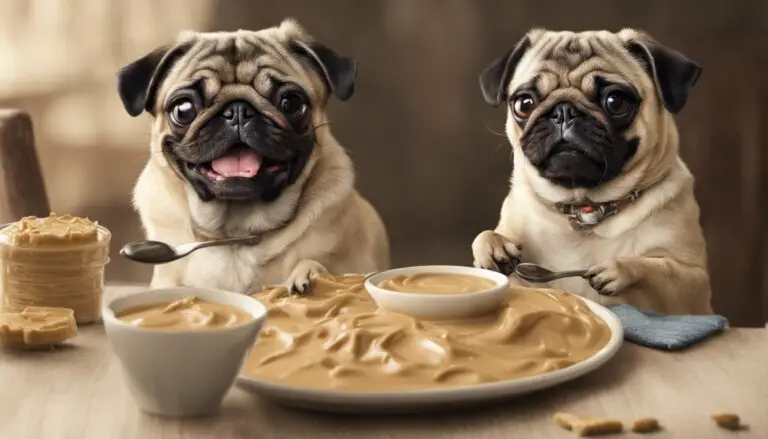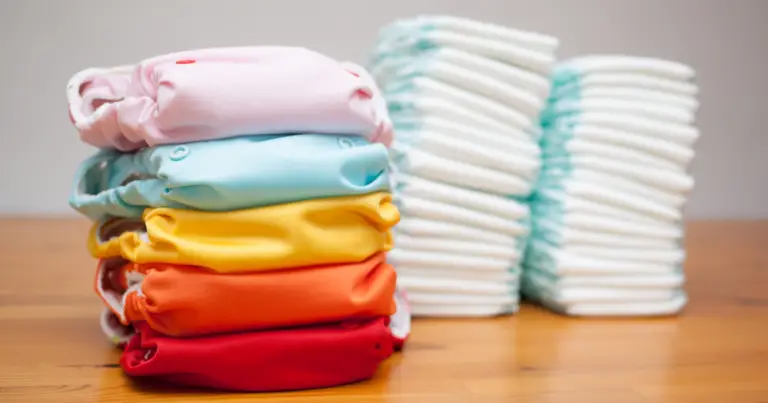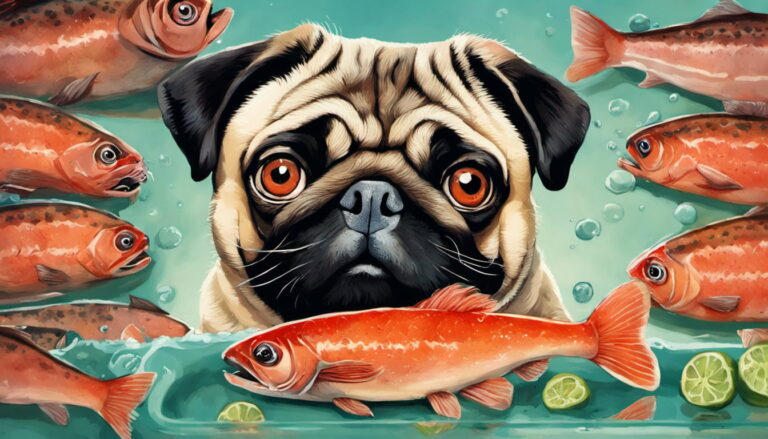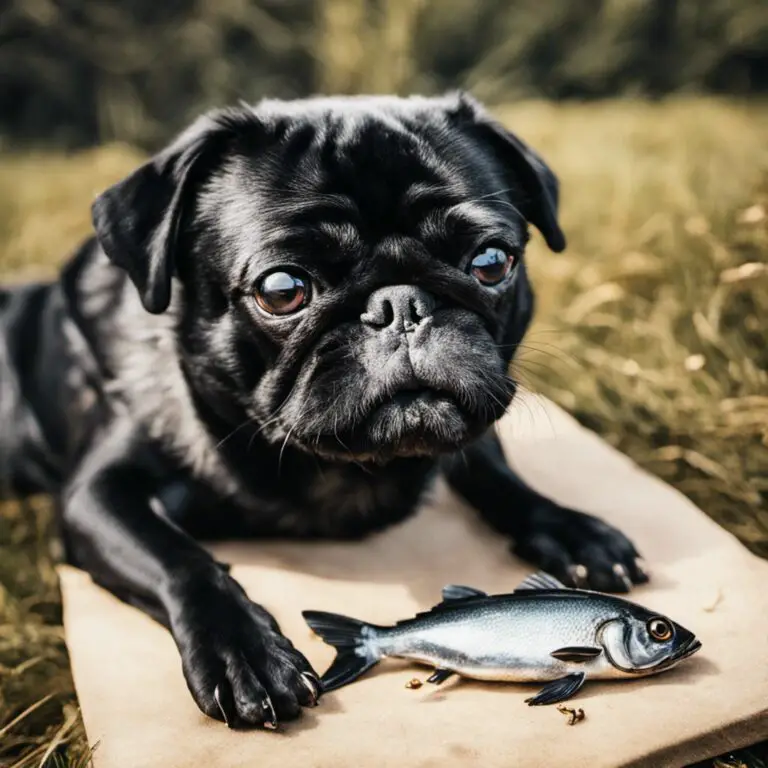Can Pugs Eat Pickles: A Comprehensive Guide for Pet Owners
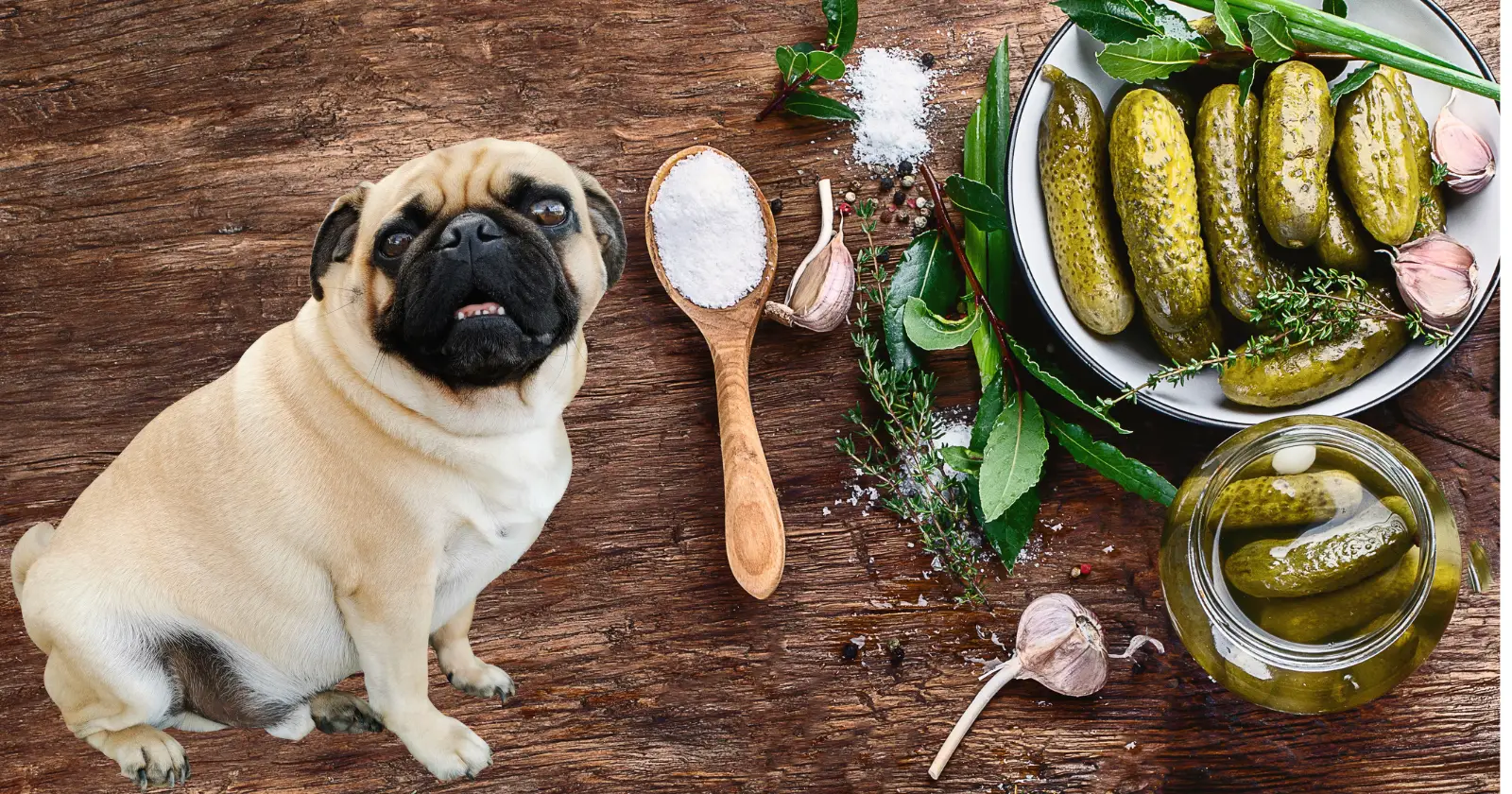
As a pug owner, you might wonder if sharing a pickle treat with your furry friend is safe. The topic of whether pugs can eat pickles isn’t clear-cut, and it’s essential to consider the details before giving your pug a pickle snack. In this article, Can Pugs Eat Pickles? We’ll dive into the factors determining whether pickles are suitable for your beloved pug.
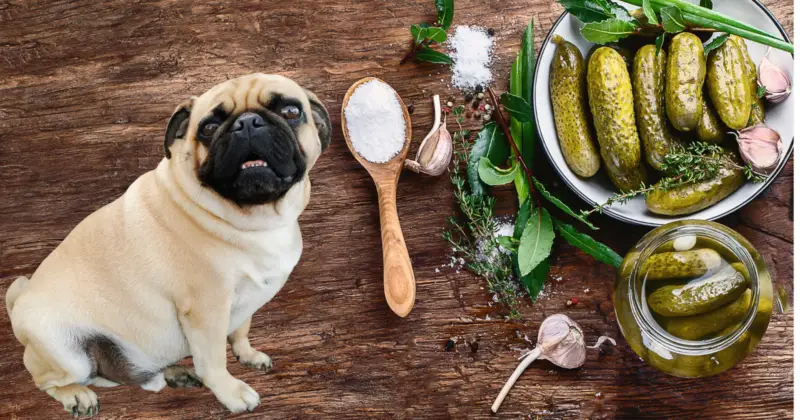
While pickles are not toxic to dogs in general, as they are simply cucumbers and dill, both of which are safe for dogs, they can be high in sodium and sometimes contain spices that might be harmful to your pet. It’s vital to understand that pickles aren’t necessarily dangerous, but veterinarians do not recommend feeding them to dogs due to these concerns.
Taking a closer look at the ingredients used in preserving pickles will help you make an informed decision about giving your pug a bite. So, let’s explore the factors that may affect your pug’s health when it comes to pickles and discover if there are any alternatives that could be a safer choice for your four-legged companion.
Contents
Table of Contents
Can Pugs Eat Pickles?
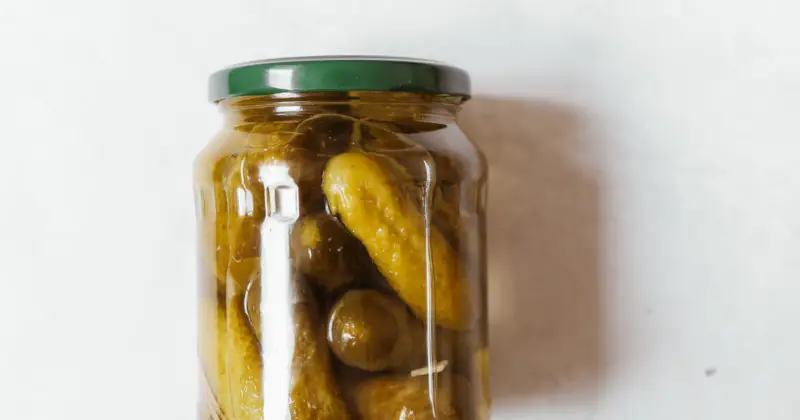
When it comes to feeding your pug, you might wonder if it’s safe to give them pickles as a treat. Although pickles are not toxic to dogs, since they are essentially cucumbers and dill, it’s important to be cautious when considering feeding them to your pug.
Get The Free Food Eating Guide That Keeps My Pug Happy and Playful Even at 13 Years Old
100% Beginner Friendly & Lists Real Foods Your Pug Can Actually Eat!

Pickles are high in sodium, which can harm your pug if consumed in large quantities. Excessive sodium intake can lead to dehydration and may even result in more serious health issues. Additionally, some pickles contain spices that could be toxic to dogs.
As a responsible pug owner, paying attention to the ingredients of the pickles you have at home is essential. When considering feeding your pug a piece of pickle, first check for any harmful components and limit their consumption to small quantities to avoid any potential harm.
It’s also crucial to remember that dogs are different, and their tolerance to certain ingredients may vary. If your pug has never had pickles before and you decide to give them a small taste, monitor their reaction closely and be prepared to contact your veterinarian if your pug shows any signs of distress or discomfort.
In conclusion, while pickles may be a tempting treat for your pug, it’s best to err on the side of caution and limit their pickle consumption. By doing so, you are ensuring your beloved pet’s continued safety and well-being.
Understanding a Pug’s Diet
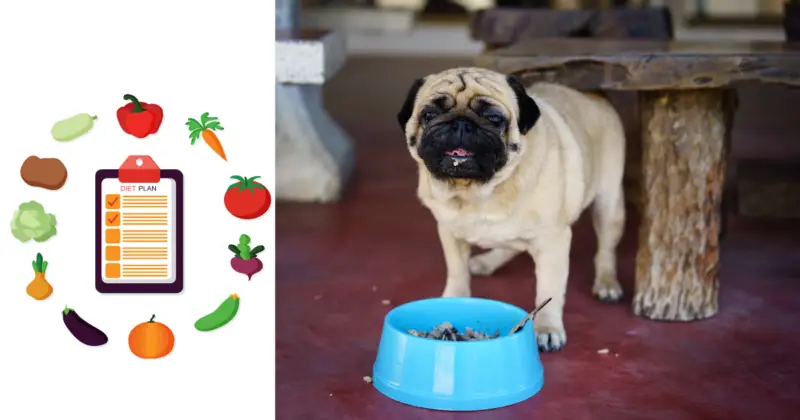
When planning your pug’s diet, it’s essential to focus on providing a balanced and healthy combination of nutrients that will keep them energized and thriving. As a responsible pet owner, you must know what foods are safe for your pug, along with any risks and precautions.
Pugs should be fed high-quality dog food formulated specifically for their breed, age, and activity level. The Royal Canin Breed Health Nutrition Pug Dry Dog Food is an example of a suitable choice for pugs older than ten months. Apart from dog food, you can also include safe fruits and vegetables in your pug’s meals.
When it comes to incorporating pickles into your pug’s diet, it’s important to note that they are not toxic to dogs, but veterinarians don’t necessarily recommend feeding them to dogs. Pickles are high in sodium, and some may contain spices harmful to dogs. If you decide to give your pug a pickle, make sure to keep it minimal.
Establishing a consistent feeding schedule is also crucial for your pug’s well-being. Find the right balance of mealtimes and portion sizes to maintain a healthy weight, and remember that as your pug grows, their nutritional needs may change.
In conclusion, providing your pug with a balanced and thoughtfully planned diet will contribute to their overall health. Keep in mind the potential risks and precautions when introducing new foods, and consult your veterinarian if you have questions or concerns.
The Nutritional Content of Pickles
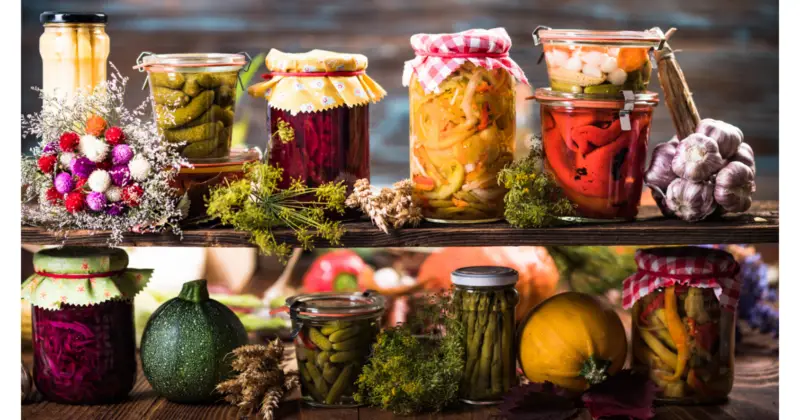
Pickles are made from cucumbers, which are naturally low in calories and provide a good source of hydration. Cucumbers contain some essential vitamins and minerals, such as vitamins A, K, and potassium. When cucumbers are pickled, they are typically soaked in a mixture of vinegar, salt, and sometimes sugar. This process affects the nutritional content of the final product.
The main difference between cucumbers and pickles is the increased levels of sodium and vinegar in pickles. This is due to the brine used during the pickling process. The brine not only adds flavor to the cucumber but it also acts as a preservative, allowing pickles to have a longer shelf life. However, the high sodium content can be a concern for your dog’s health, as excessive salt intake may lead to imbalances in their electrolytes and hydration levels.
While pickles do contain some fiber, the amount is relatively low. This is because the fibrous parts of the cucumber are softened during the pickling process. Fiber is important for your dog’s digestive health, but pickles are not the best source to provide this essential nutrient.
Regarding vitamins and minerals, pickles still retain some of the beneficial nutrients found in cucumbers. They contain small amounts of vitamin A, vitamin K, calcium, and magnesium. However, these nutrients may not be sufficient for your dog’s overall well-being, as they’re present in limited quantities.
Sugar may sometimes be added to the brine to create sweeter pickles. This additional sugar can be harmful to your dog, as it contributes to unnecessary calories and can lead to weight gain and dental issues if consumed in large amounts.
Dill is one ingredient often used in the pickling process, and it is safe for dogs to consume. In fact, dill has some health benefits for dogs as it is rich in antioxidants and has anti-inflammatory properties.
In summary, pickles primarily comprise cucumbers, dill, vinegar, salt, and sometimes sugar. The pickling process increases the sodium and vinegar content while retaining small amounts of beneficial vitamins and minerals. It’s important to remember that pickles are not an ideal source of nutrition for your dog due to their high sodium levels and limited nutritional benefits.
Why Pickles Might Be Harmful to Pugs
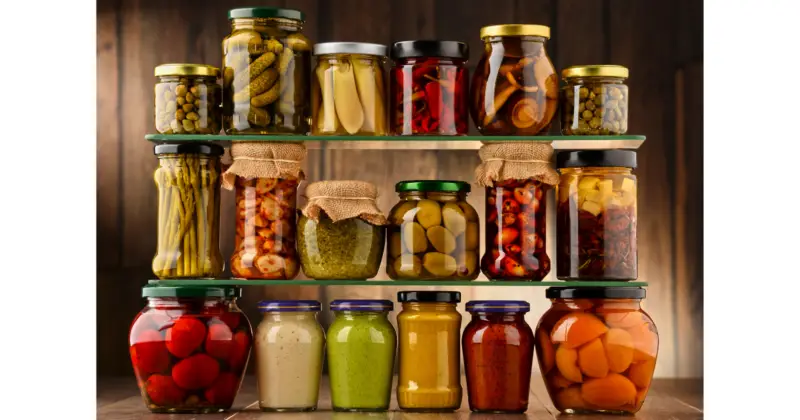
While pickles are not toxic to dogs, they contain some ingredients and components that may pose risks to your Pug’s health. Understanding these potential hazards is essential before offering your furry friend a taste of your favorite snack.
One concern with pickles is their high sodium content. Consuming excessive amounts of sodium can lead to increased blood pressure, which could risk your Pug’s heart health. Additionally, too much salt can cause dehydration, which may lead to vomiting and diarrhea. Thus, it’s best to limit your dog’s salt intake.
Furthermore, the vinegar used to make pickles can also be problematic for your Pug. While vinegar in small amounts is not necessarily harmful, it can cause acid reflux, upset stomach, and other digestive issues if consumed in large quantities. This is especially problematic for Pugs, who are known to have sensitive stomachs.
Some pickles also contain onions or garlic, both of which are toxic to dogs and can cause symptoms such as vomiting, diarrhea, and anemia. Ingesting even small amounts of onions or garlic can lead to serious health issues, so it’s crucial to avoid these ingredients when feeding your Pug human foods.
The spices used to flavor pickles, such as dill and other herbs, are generally safe for dogs; however, some pickles may contain additional spices that could pose risks. For example, nutmeg is toxic to dogs and can cause symptoms like seizures and tremors. It’s important to be aware of the ingredients in your pickles and avoid offering your Pug anything that may cause harm.
Lastly, while the brine used to make pickles is not inherently dangerous, it can lead to bad breath in your Pug. This may seem like a minor concern, but it’s worth considering if you’re thinking about feeding your dog pickles as a treat.
In conclusion, it’s essential to be cautious when offering your Pug human foods, and it’s always wise to consult with your vet before introducing new treats to your pet’s diet.
Effects of Sodium and Salt on Pugs
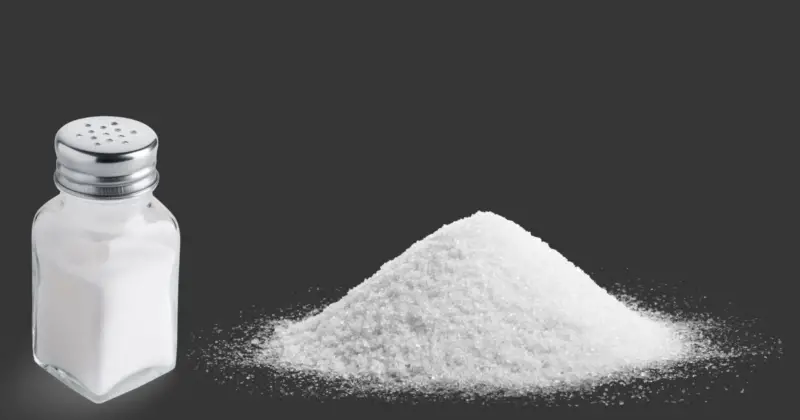
As a pug owner, you should pay close attention to the amount of sodium and salt in your dog’s diet. High levels of sodium can lead to several health issues, including high blood pressure, dehydration, and kidney disease.
High Blood Pressure: Consuming excessive salt can cause high blood pressure in pugs, just as it does in humans. High blood pressure can stress your dog’s cardiovascular system unnecessarily, potentially damaging their organs and leading to serious health problems.
Dehydration: When your pug consumes too much salt, it increases their body’s need for water, which can lead to dehydration if they are not provided with adequate hydration. Be sure always to provide your dog with fresh, clean water to help mitigate the risk of dehydration.
Kidney Disease: High sodium levels can put extra strain on your pug’s kidneys, causing them to work harder to maintain proper fluid balance within the body. Over time, this strain can lead to kidney disease or even kidney failure. It is crucial to feed your pug a balanced diet that is low in sodium to maintain kidney health.
To manage your pug’s sodium intake, opt for fresh, minimally processed foods that are low in salt. Avoid feeding your pug human food, as it often contains high sodium levels that can be harmful to them. Providing your canine companion with a well-rounded diet and monitoring their sodium consumption is essential for their overall health and well-being.
Can Pugs Eat Pickles? Watch this
When Pugs Eat Too Many Pickles
If your pug eats too many pickles, it can lead to various health issues. While not toxic to dogs, pickles are not recommended for regular consumption due to their high salt content and possible ingredients that may cause adverse reactions in pugs.
Overweight pugs are more prone to ailments, and if your pug is already overweight, feeding them pickles may further contribute to weight gain. The high salt content in pickles can lead to water retention and exacerbate the issue, increasing the risk of heart disease and high blood pressure1. It’s essential to monitor your pug’s weight and adjust their diet accordingly to keep them in optimal health.
In some cases, pickles may contain ingredients like onions and garlic, which can be poisonous to dogs. The consumption of these ingredients can lead to symptoms such as loss of balance, ataxia, and even anemia2. If you notice any signs of poisoning in your pug, it’s vital to contact your veterinarian immediately.
While pickles themselves might not directly cause poisoning if eaten in moderate amounts, overconsumption may still lead to digestive distress in your pug. This can result in symptoms such as vomiting, diarrhea, and abdominal pain 3. In some cases, the high salt content can even lead to dehydration4, so ensuring your pug has access to fresh water is crucial.
As a responsible pug owner, it’s essential to be mindful of what you feed your pet. Limiting their intake of pickles and focusing on providing them with a well-balanced diet will help ensure their overall health and well-being.
Safe Alternatives to Pickles for Pugs
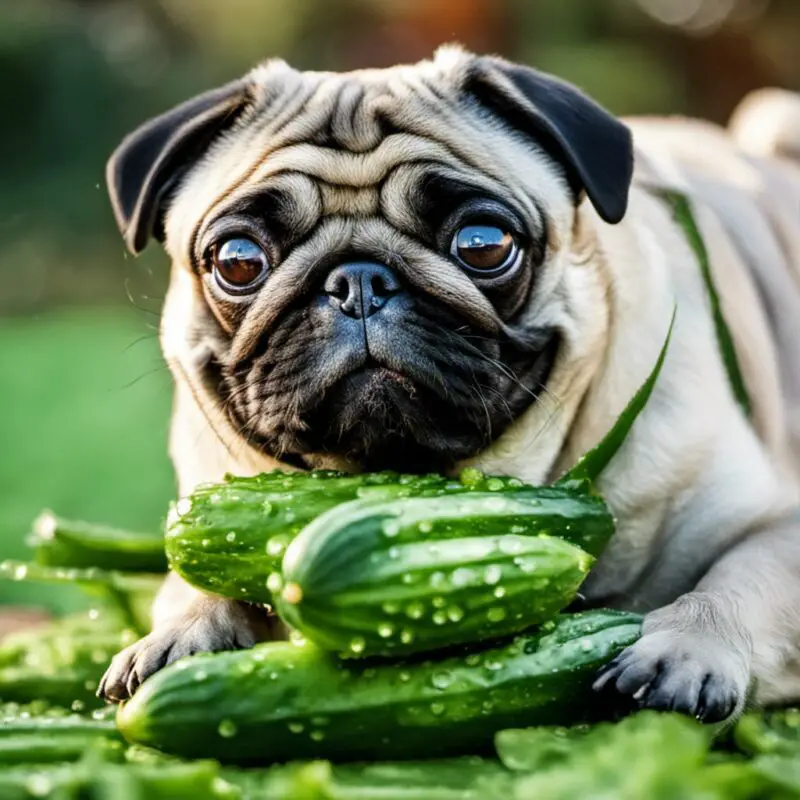
As a responsible pet owner, you may wonder what other safe and healthy options are available for your pug. While pickles are not toxic, they can have a high sodium content and may contain spices that could be toxic to dogs source. Don’t worry; there are plenty of safe alternatives to pickles for your pug to enjoy.
Cucumbers are an excellent option for your pug, as they are low in calories and don’t have any harmful additives like pickles do. They provide hydration and boast various health benefits without posing any risks to your furry friend.
Carrots can be an ideal snack for your pug when given in moderation. They are rich in fiber and beta-carotene and are a low-calorie treat source. However, remember not to feed large amounts of carrots to your pug because of their high fiber content.
If you are looking for a sweet and refreshing fruit option, apples are a great choice – just remember to remove the seeds and core. Apples are packed with vitamins and antioxidants, contributing to your pug’s overall health. As with all treats, offer apples in moderation to prevent any digestive issues.
There are numerous other fruit and vegetable options that are safe for your pug to enjoy as well. Some of these include:
- Blueberries and Blackberries: Packed with vitamins, minerals, and antioxidants source.
- Peas: A delicious source of protein and fiber.
- Green beans: Low in calories and high in beneficial nutrients.
- Sweet potatoes: A healthy treat full of beta-carotene, vitamin A, and fiber.
When it comes to snacks, always opt for natural, minimally processed options without added sugar or harmful ingredients. For instance, lean, cooked meat like chicken or turkey can be a great treat for your pug and offer them essential proteins without posing risks.
In conclusion, your pug can safely enjoy a variety of fruits, vegetables, and snacks as long as you remain cautious and research each option. Always keep it brief, balanced, and confident when offering these alternatives to pickles for your pug.
Vet’s Guidance on Pugs Having Pickles
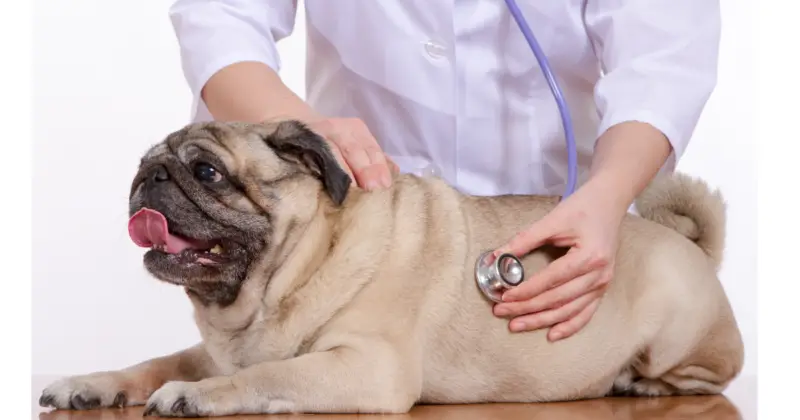
Veterinarians generally do not recommend feeding pickles to your pug. While pickles are made from cucumbers which are not toxic for dogs, they are high in sodium and not a healthy treat for your pet.
The Association of American Feed Control Officials (AAFCO) establishes guidelines and standards for the proper dietary needs of pets. Although pickles are not specifically addressed by the AAFCO, maintaining a diet that adheres to their guidelines will ensure that your pug receives proper nutrition and avoids ingesting harmful substances.
If your pug happens to eat a pickle accidentally, there’s no need to panic. They are not toxic, and your pet should be fine. However, remember that pickles might be harmful to your pet, especially if they have been pickled with ingredients like garlic or onions, which are toxic for dogs.
Instead of pickles, consider giving your pug fresh fruits or vegetables as treats. Make sure to consult your veterinarian for guidance on safe and healthy options. For example, fresh dill in small amounts can be helpful for your dog’s digestive system, though it is not a substitute for the nutrition provided by a well-balanced meal.
In summary, avoid feeding your pug pickles and stick to healthier treat alternatives. Always follow your veterinarian’s advice, and adhere to AAFCO guidelines for a safe and balanced diet for your pet.
Can Pugs Eat Pickles?

In summary, while it is not harmful for pugs to eat pickles in small amounts, it is not recommended to make it a regular part of their diet. Pickles contain high amounts of salt, which can be harmful to your pug when consumed in excess. It is always better to opt for healthier and more suitable treats for your furry friend.
If your pug happens to eat a pickle accidentally, monitor it closely for any signs of discomfort or adverse reactions. In case of any concerning symptoms, do not hesitate to consult your veterinarian for advice.
When it comes to your pug’s diet, it is important to focus on providing a balanced, nutritious selection of safe foods. There are a variety of fruits, vegetables, and snacks that are both healthy and approved for pug consumption. Sticking to these options ensures that your pug remains happy, healthy, and satisfied.
Frequently Asked Questions
Can dogs have dill pickles?
Dogs can technically eat dill pickles, but it’s not recommended due to their high sodium content. Pickles may be safe for dogs in small quantities as a rare treat, but you should avoid feeding them on a regular basis.
Can dogs eat tomatoes?
It is safe for dogs to eat ripe tomatoes, but the leaves and stems of the tomato plant are toxic to them. It’s best to keep tomatoes out of your dog’s diet as the risks outweigh the benefits.
Are pickles safe for dogs to eat?
In general, pickles are not toxic to dogs, but they are not recommended due to their high sodium content. If your dog accidentally eats a pickle, they should be fine, but it is not a healthy treat for them.
What if my dog ate a pickle?
If your dog accidentally ate a pickle, don’t panic. Pickles are not toxic for dogs, so eating one shouldn’t cause serious harm. However, if your dog consumes a large number of pickles, consult your veterinarian due to the high sodium content.
Can dogs have sweet pickles?
Sweet pickles, much like dill pickles, are not toxic for dogs, but should be avoided due to the added sugar and high sodium content. It’s best to keep sweet pickles away from your dog and consider offering them healthier treats instead.
Can dogs eat onions?
No, dogs should never eat onions. Onions are toxic to dogs and can cause a host of issues, including damage to their red blood cells. If you suspect your dog has consumed onions, contact your veterinarian immediately to seek medical attention.

